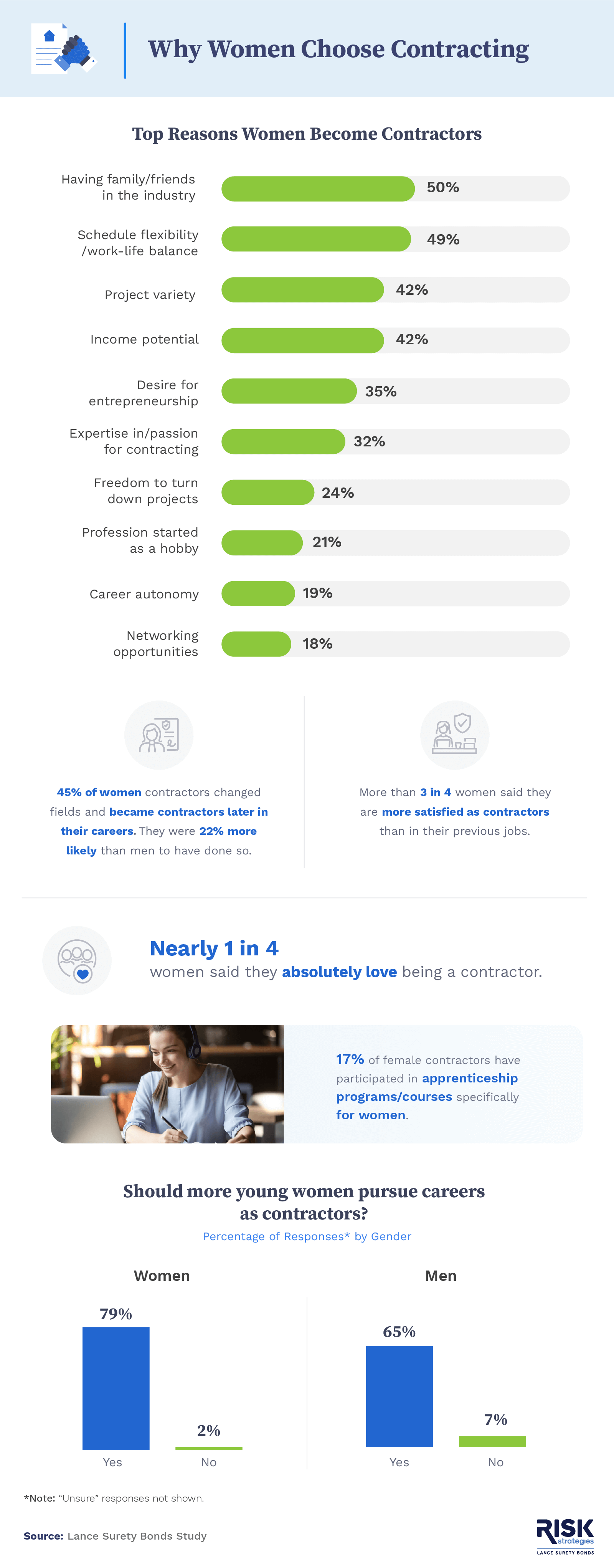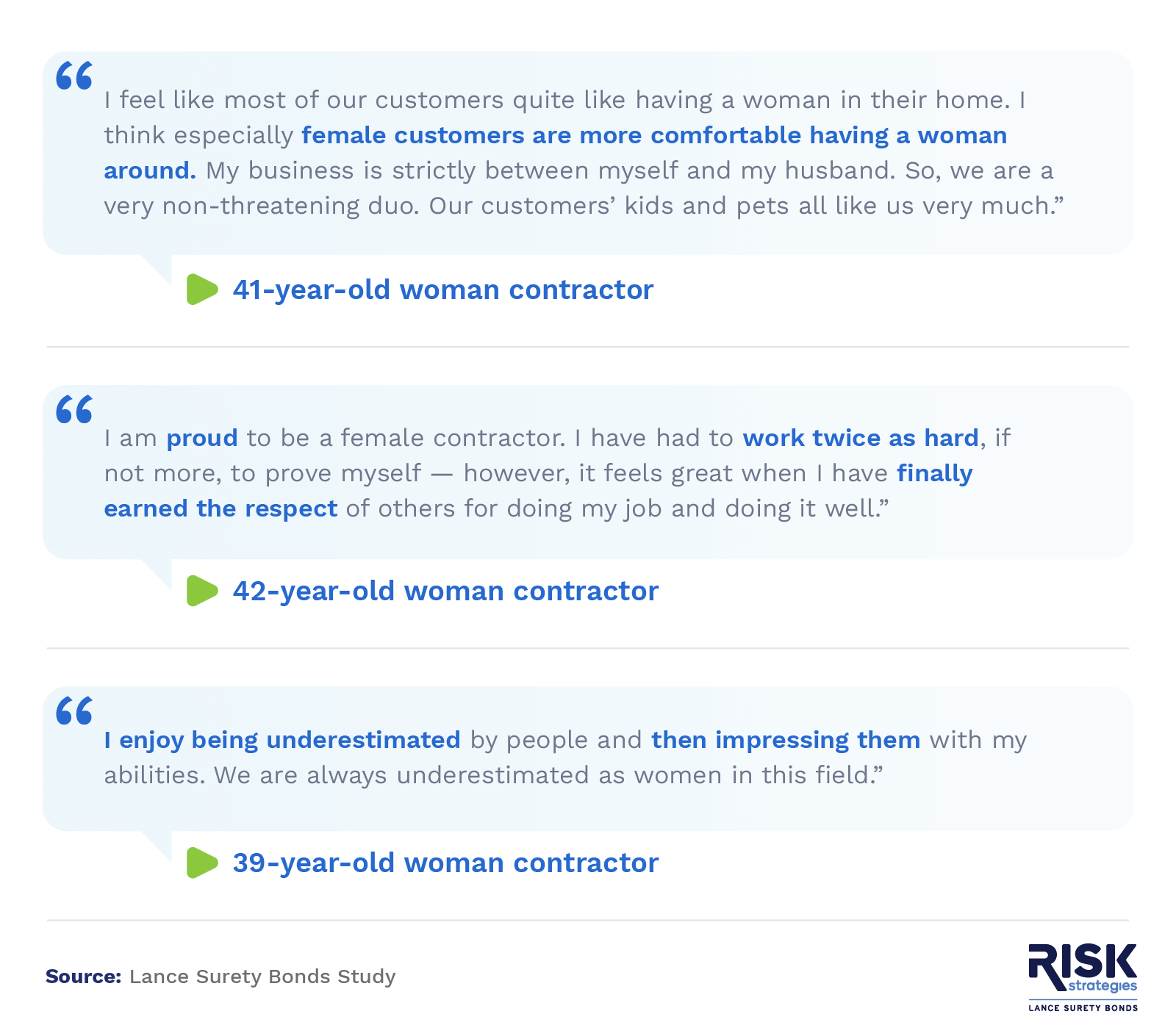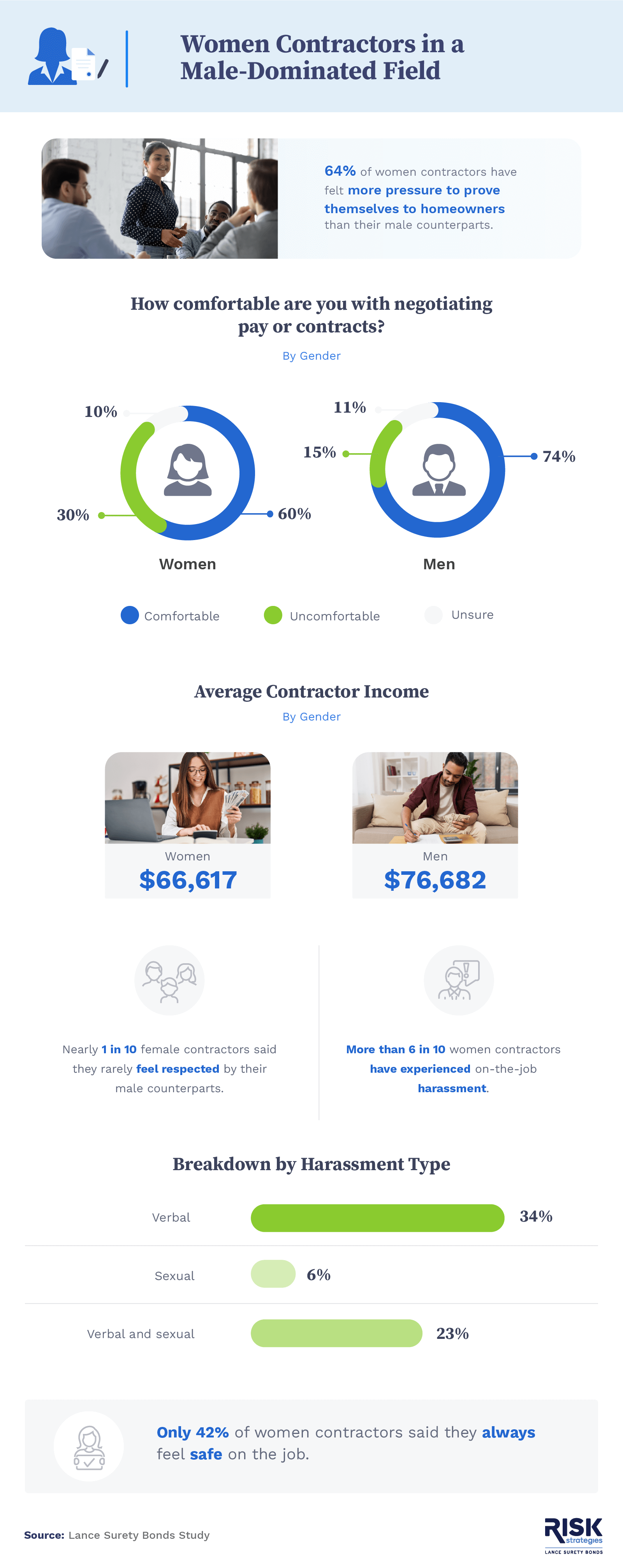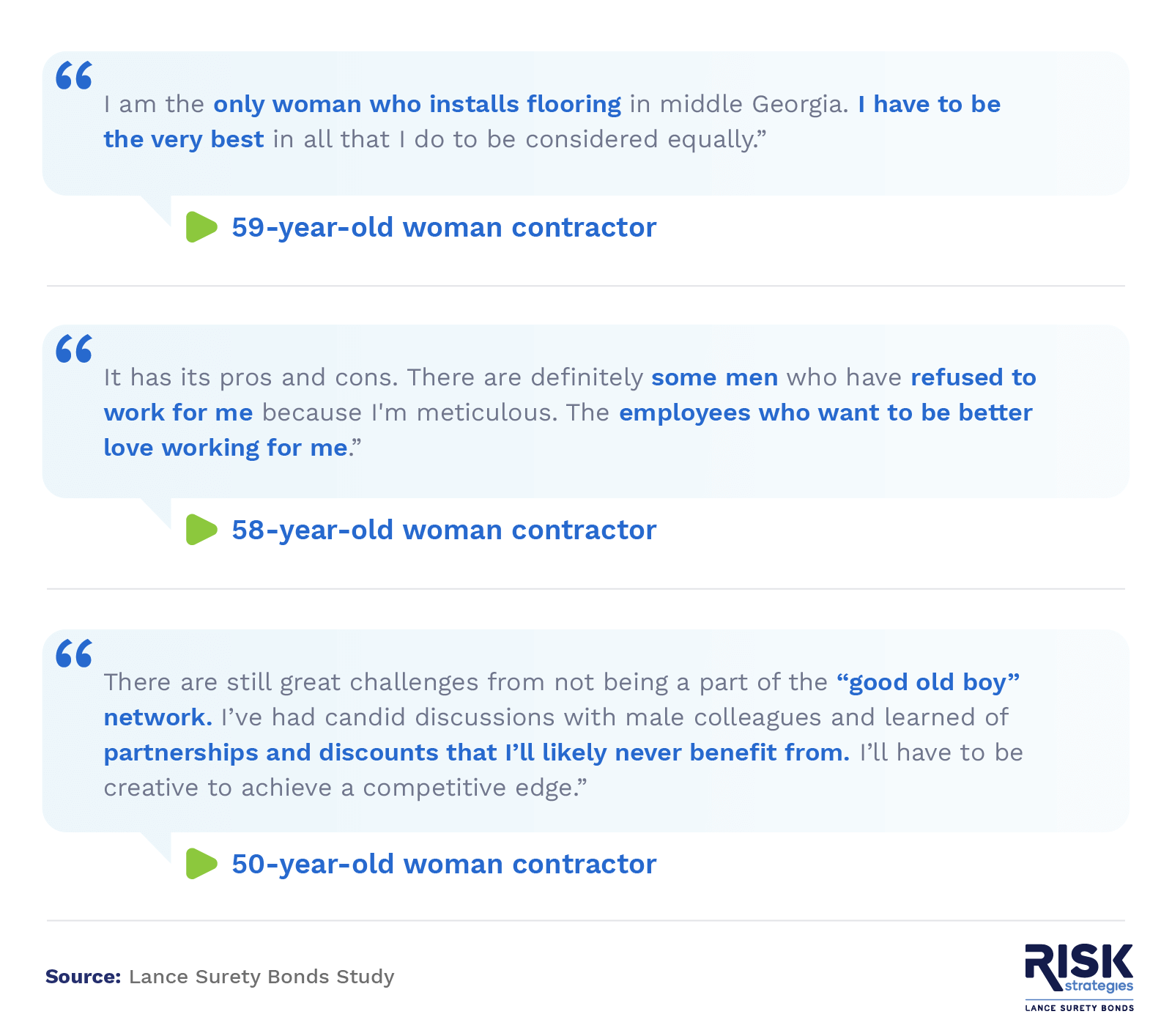Breaking Ground: The Rise of Women Contractors

The construction industry, often perceived as male-dominated, is transforming with an increase in the number of women contractors. This shift challenges traditional norms and enriches the sector with diverse perspectives and skills. To understand this change and what it could mean for the industry, we surveyed female general contractors about their career experiences, motivations, and challenges. This article presents our results and sheds light on why women are drawn to this field and what shapes their professional paths within it.
Key Takeaways
- Nearly 1 in 4 female contractors said they love their job.
- 79% of female contractors agree that more young women should pursue careers as contractors.
- More than 3 in 4 women who’ve had a career change said they’re more satisfied as contractors than they were in their previous jobs.
- 64% of women contractors have felt more pressure than their male counterparts to prove themselves to homeowners.
- Male contractors reported $10,065 (15%) more in average annual earnings than female contractors.
- More than 6 in 10 female contractors have experienced on-the-job harassment.
- Women were twice as likely as men to feel uncomfortable negotiating pay with homeowners.
- Nearly 1 in 10 female contractors said they rarely feel respected by their male counterparts, and 27% reported workplace discrimination.
Women’s Journeys Into Contracting
This section assesses the reasons why women enter the contracting field, highlighting the influence of personal connections and the appeal of the industry’s opportunities for growth and flexibility.

The pathways to becoming a general contractor for women diverged significantly from those of their male counterparts, with personal connections being the most impactful. Women were 56% more likely than men to say they became a contractor because they had family and friends in the industry. This was the top reason women entered the field, followed by schedule flexibility (cited by 49%). Income potential was another common motivation, according to 42% of respondents. These findings suggest that contracting can offer women autonomy and lucrative careers.
A common thread connecting many female contractors was transitioning to contracting later in their careers (53%) rather than starting out as contractors. Women were also 43% more likely than their male peers to have entered the field after switching from a different field of work. This led to greater job satisfaction for many, as more than three-quarters of the women we surveyed reported being more satisfied as contractors than in their previous jobs.
Similarly, nearly 1 in 4 women said they absolutely love being a contractor, reinforcing this career’s positive impact on their professional fulfillment. It could also have great potential for future generations of women: 79% of female contractors agreed that more young women should pursue careers as contractors. That’s a strong endorsement of the profession’s benefits and opportunities for women.
We also asked female contractors for some insights on what it’s like to work in this field. Here’s what they had to say:

Women Overcoming Obstacles in Contracting
Women face distinct challenges in the construction industry, where gender perceptions often influence professional dynamics. From feeling a heightened need to prove their capabilities to homeowners and earning less than their male counterparts, to the struggle for respect among peers, these issues highlight the gender disparities still present in the field.

A significant 64% of women contractors reported feeling more pressure than their male counterparts to prove themselves to homeowners, suggesting a disparity in gender perceptions in the construction industry. Negotiating pay was also more challenging for women, who were twice as likely as men to feel uneasy about such discussions. The gender wage gap exacerbates this. We found that male contractors earned an average of $10,065 more annually than their female counterparts, a difference of 15%.

Another issue women contractors face is a lack of respect; nearly 1 in 10 disclosed that they rarely feel respected by their male counterparts. Worsening these interpersonal dynamics, more than 6 in 10 have faced on-the-job harassment, and only 42% have felt consistently safe while working. These problems tie into the fact that 27% of female contractors said they’ve encountered workplace discrimination.
Other common challenges included marketing their business (32%), juggling work with family responsibilities (32%), and time management (32%). Another 23% struggled with ill-fitting personal protective equipment (PPE), posing serious health risks and revealing the need for industry-wide initiatives to create a safer, more inclusive environment for women contractors.
The Future of Women as General Contractors
Our survey reveals a nuanced narrative of women contractors who are carving out their space in the construction industry. Personal relationships and a desire for career transformation fuel their resilience, adaptation, and professional pursuits. This exploration also emphasizes the importance of fostering an inclusive environment that supports diversity. As the contracting industry evolves, its increasing presence of women promises to drive innovation and growth, making it imperative for the sector to embrace and encourage this change.
Methodology
We surveyed 227 contractors; 56% were men, and 44% were women. By generation, 4% were baby boomers, 30% were Gen X, 57% were millennials, and 9% were Gen Z. As for their work, 51% worked in general construction (including major structural work and masonry), 13% worked in finishing trades (painting, flooring, and detailed carpentry), 6% worked in electrical systems, 4% worked in mechanical systems (HVAC, plumbing), 4% worked in landscaping, 15% were multidisciplinary, and 6% reported something else (other). Percentages may not add up to 100 due to rounding.
About Lance Surety Bonds
Lance Surety Bonds is a top-ranked national provider of surety bonds, offering a broad spectrum of bond types such as contractor license bonds, to accommodate the diverse needs of businesses and individuals. Our commitment to innovation and customer service ensures a seamless and supportive bonding experience for our clients.
Fair Use Statement
If you’re inspired by the stories of women contractors and wish to share this article, we welcome you to do so for non-commercial purposes. Please provide a link back to our original content if you do, allowing your readers to access the full insights and methodology of our study.
- Fast and Secure Application
- Nationwide Coverage
- Approval in Minutes
- Money Back Guarantee
Recommended Articles
- Fast and Secure Application
- Nationwide Coverage
- Approval in Minutes
- Money Back Guarantee
- Image

- Image

- Image

Lance Surety Bond Associates, Inc. is a surety bond agency based out of southeastern Pennsylvania that is able to write all surety bond types in all 50 states. We are dedicated to servicing all of our customers' surety bonding needs throughout the country and guarantee competitive rates, timely responses, and unparalleled customer service.




